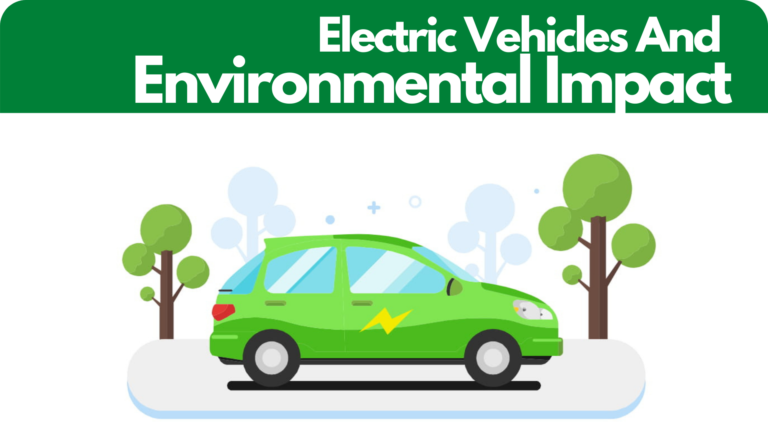
Discover the essentials of electric car insurance, from securing favorable deals to cutting costs on your electric vehicle (EV) to counterbalance the higher insurance expenses.
As electric cars gain popularity, grasping insurance costs and choices becomes paramount for prospective owners contemplating the switch. Unlike traditional gasoline cars, insuring an EV involves unique factors. This exhaustive handbook delves into electric car insurance intricacies, covering cost determinants, money-saving techniques, and more.
Understanding Electric Vehicle Insurance Costs
The expense of insuring an electric car can vary significantly due to multiple factors. Typically, premiums for electric car insurance surpass those for conventional gasoline cars. Recent research indicates that insuring an electric vehicle costs around 20% more on average than insuring a gasoline vehicle.
However, bear in mind that your electric car insurance cost may fluctuate based on factors like your EV’s make and model, driving history, age, location, and your chosen auto insurance provider. For instance, insuring high-end luxury EV models such as the Tesla Model X or Rivian R1S might be notably pricier than insuring more economical options like the Nissan LEAF or Chevrolet Bolt EV.
Understanding the Elevated Costs of Electric Vehicle Insurance
Several factors contribute to the higher insurance costs associated with electric vehicles compared to their gasoline counterparts:
- Higher Repair Expenses: Electric vehicles often necessitate specialized equipment and trained technicians for repairs, which can inflate costs compared to traditional vehicles.
- Battery Replacement Costs: Replacing the battery pack in an electric vehicle can be a costly affair, sometimes running into thousands of dollars.
- Advanced Technology: Electric cars feature cutting-edge technology like advanced driver assistance systems (ADAS) and sophisticated electronics, which can be expensive to repair or replace if damaged.
- Limited Repair Facilities: With electric vehicles still relatively new, there are fewer repair shops equipped to handle EV repairs, potentially resulting in higher costs.
- Higher Vehicle Value: Many electric cars, especially luxury models, come with higher price tags than their gasoline-powered counterparts, leading to higher insurance premiums.
Where to Obtain Electric Car Insurance
Most car insurance companies offer electric car insurance, including Geico, Progressive, State Farm, and Allstate. Some insurers, such as Travelers and Liberty Mutual, even provide specialized EV auto insurance rates with unique discounts for electric vehicle owners.
When shopping for electric car insurance, it’s crucial to compare quotes from multiple providers and carefully assess coverage options and exclusions. Consider factors such as liability and coverage limits, collision and comprehensive coverage, roadside assistance, and any EV-specific additional options.
Tips for Reducing Electric Vehicle Insurance Costs
While insuring an electric vehicle may be costlier than traditional cars, employing several strategies can help save money:
- Comparison Shopping: Compare quotes from various insurance providers to find the best rates and coverage options.
- Bundling Policies: Many insurers offer discounts for bundling your EV insurance with other policies like home or renters insurance.
- Maintaining a Clean Driving Record: A clean driving record devoid of accidents and violations can lower insurance premiums.
- Increasing Deductibles: Raising your insurance deductible can reduce monthly or annual premiums, although consider potential out-of-pocket costs in case of claims.
- Considering Usage-Based Insurance: Some insurers offer usage-based insurance programs that reward safe driving habits with lower rates.
- Leveraging Discounts: Many insurers provide discounts for safety features, anti-theft devices, low mileage, and completion of defensive driving courses.
Exploring Tesla Auto Insurance
Tesla offers its in-house insurance program called Tesla Insurance, tailored specifically for Tesla vehicles. Available in select states, Tesla Insurance aims to provide transparent and competitive insurance by handling claims and repairs directly, without involving an insurance company middleman.
However, Tesla’s insurance comes with unique rules affecting insurance rates. Except for California residents, you’re required to use your Tesla’s built-in telematics system, the Tesla Safety Score, which monitors your driving behavior and becomes the primary factor in determining your insurance rates.
While conventional insurers consider factors like claims history and driving record, Tesla Insurance heavily relies on real-time driving performance assessed by the Safety Score. This system incentivizes safe driving habits but introduces variability in insurance rates based on recent driving patterns.
If you own a Tesla and reside in an area where Tesla Insurance operates, consider this option alongside quotes from traditional insurers.
Additional Benefits of Going Electric
While insurance considerations are crucial when transitioning to electric, embracing this eco-friendly technology offers numerous advantages beyond insurance rates:
- Lower Operating Costs: EVs boast lower operating expenses compared to gasoline vehicles, with reduced upkeep costs due to no need for regular oil changes or engine maintenance.
- Environmental Sustainability: EVs contribute to reducing greenhouse gas emissions and improving air quality by eliminating tailpipe emissions.
- High-Performance Driving: EVs provide responsive and exhilarating driving experiences with instant torque and smooth acceleration.
- Quiet and Comfortable Rides: Electric motors operate quietly, offering a serene cabin environment conducive to comfortable commutes or long journeys.
- Cutting-Edge Technology: EVs incorporate advanced technologies like ADAS, automated software updates, and expansive infotainment systems, providing the latest automotive innovations.
Saving Money on Your EV
In addition to insurance rates, various strategies can help save money on your electric vehicle:
- Tax Credits and Incentives: Federal and state governments offer tax credits, rebates, reduced registration fees, and other incentives to promote EV adoption.
- Charging at Home: Installing a home charging station can be cost-effective compared to relying solely on public charging stations.
- Utility Discounts: Some utility companies offer EV rebates, discounted rates, or special charging plans for electric vehicle owners.
- Maintenance and Fuel Savings: EVs typically require less maintenance than conventional vehicles and offer lower fuel costs due to cheaper charging.
By understanding electric vehicle insurance intricacies and exploring cost-saving strategies, you can make informed decisions about owning an EV while minimizing financial impact. To explore the best deal for your preferred electric vehicle, get pre-qualified at EV Life and start saving money while contributing to a sustainable future.








